Discover GZERO World with Ian Bremmer
GZERO World with Ian Bremmer

GZERO World with Ian Bremmer
Author: GZERO Media
Subscribed: 1,655Played: 75,673Subscribe
Share
© GZERO Media 2025
Description
The United States will no longer play global policeman, and no one else wants the job. This is not a G-7 or a G-20 world. Welcome to the GZERO, a world made volatile by an intensifying international battle for power and influence. Every week on this podcast, Ian Bremmer will interview the world leaders and the thought leaders shaping our GZERO World.
408 Episodes
Reverse
US President Donald Trump has been piling the pressure on Russia and Venezuela in recent weeks. He placed sanctions on Russia’s two largest oil firms and bolstered the country’s military presence around Venezuela – while continuing to bomb ships coming off Venezuela’s shores. But what exactly are Trump’s goals? And can he achieve them? And how are Russia and Venezuela, two of the largest oil producers in the world, responding? GZERO's Zac Weisz and Riley Callanan discuss. Hosts: Zac Weisz, Riley Callanan
Subscribe to the GZERO World with Ian Bremmer Podcast on Apple Podcasts, Spotify, or your preferred podcast platform, to receive new episodes as soon as they're published. Hosted by Simplecast, an AdsWizz company. See pcm.adswizz.com for information about our collection and use of personal data for advertising.
This is normally where you’ll find extended versions of Ian Bremmer's interviews from the public television show, but today we're bringing you something a little different. Ian just returned from Tokyo, Japan where he delivered his annual State of the World address to packed audience of diplomats, business leaders, and opinion makers from around the world.Each year, this speech is a chance to take stock of where things stand geopolitically, and today the picture is more uncertain than ever. We’re not just facing new conflicts and crises. We’re facing a deeper transformation of the global order, driven most significantly by the world’s most powerful country stepping back. The United States isn't losing influence because of weakness. It’s walking away by choice.That decision is reshaping alliances, weakening global institutions, and leaving many of America’s closest partners searching for a plan B. In the absence of leadership, the G-Zero world becomes more chaotic, more transactional, and less stable.Host: Ian Bremmer
Subscribe to the GZERO World with Ian Bremmer Podcast on Apple Podcasts, Spotify, or your preferred podcast platform, to receive new episodes as soon as they're published. Hosted by Simplecast, an AdsWizz company. See pcm.adswizz.com for information about our collection and use of personal data for advertising.
Can we align AI with society’s best interests? Tristan Harris, co-founder of the Center for Humane Technology, joins Ian Bremmer on the GZERO World Podcast to discuss the risks to humanity and society as tech firms ignore safety and prioritize speed in the race to build more and more powerful AI models. AI is the most powerful technology humanity has ever built. It can cure disease, reinvent education, unlock scientific discovery. But there is a danger to rolling out new technologies en masse to society without understanding the possible risks. The tradeoff between AI’s risks and potential rewards is similar to deployment of social media. It began as a tool to connect people and, in many ways, it did. But it also become an engine for polarization, disinformation, and mass surveillance. That wasn’t inevitable. It was the product of choices—choices made by a small handful of companies moving fast and breaking things. Will AI follow the same path?Host: Ian BremmerGuest: Tristan Harris
Subscribe to the GZERO World with Ian Bremmer Podcast on Apple Podcasts, Spotify, or your preferred podcast platform, to receive new episodes as soon as they're published. Hosted by Simplecast, an AdsWizz company. See pcm.adswizz.com for information about our collection and use of personal data for advertising.
Public disgust with Washington is growing as the government shutdown continues, with both Democrats and Republicans seemingly unwilling to compromise. Is the American political system broken beyond repair? Former GOP fundraiser and chief of staff for Mitch McConnell, Steven Law, joins Ian Bremmer on the GZERO World Podcast to discuss the state of America’s political parties ahead of a pivotal midterm election year.While Congress seems more polarized and divided than ever, Law believes that the American public writ large wants leaders who are constructive and unifying, even as they’re prosecuting a strong agenda. But exactly what that agenda is, is what’s unclear. According to Law, the GOP has become the party of Trump while the Democrats are experiencing an identity crisis and period of “massive redefinition.” What should parties focus on ahead of next year’s midterms? Can either side break through the deep polarization in DC to deliver a message that resonates with voters?Host: Ian BremmerGuest: Steven Law
Subscribe to the GZERO World with Ian Bremmer Podcast on Apple Podcasts, Spotify, or your preferred podcast platform, to receive new episodes as soon as they're published. Hosted by Simplecast, an AdsWizz company. See pcm.adswizz.com for information about our collection and use of personal data for advertising.
Investing in health and science research isn’t just about curing diseases. It has huge impacts across society, from creating jobs to driving economic growth to boosting national competitiveness. Study shows that every $ invested in the life sciences industry generates $3 in GDP globally, whereas every job created in the life sciences industry generates five in the global economy. Life sciences are one of the most powerful engines of prosperity, yet many governments still underestimate their economic return.In this episode of The Ripple Effect: Investing in Life Sciences, host Dan Riskin speaks with Patrick Horber, President of Novartis International, and David Gluckman, Vice Chairman of Investment Banking and Global Head of Healthcare at Lazard. Together, they break down the outsized economic impact of life science innovation, from trillions in US bioscience output to China’s meteoric rise as a global R&D hub. The conversation delves into the ways governments can support innovation with not just money, but through policy and regulation; plus, some of the best ways that countries can help the sector secure investment, talent, and long-term growth.This limited series, produced by GZERO’s Blue Circle Studios in partnership with Novartis, examines how life science innovation plays a vital role in fulfilling that commitment. Host: Dan RiskinGuests: Patrick Horber, David Gluckman
Subscribe to the GZERO World with Ian Bremmer Podcast on Apple Podcasts, Spotify, or your preferred podcast platform, to receive new episodes as soon as they're published. Hosted by Simplecast, an AdsWizz company. See pcm.adswizz.com for information about our collection and use of personal data for advertising.
Militarily, Israel is dominant. Diplomatically, it’s more isolated than ever.This week, Israeli Prime Minister Benjamin Netanyahu made his fourth trip to the White House since President Trump returned to office, standing beside him to unveil what Trump called a “landmark” Gaza peace proposal. But behind the bold language is a growing distance between Israel and the world. Gaza has been devastated, Hamas is on its heels, and yet, the cost to Israel’s global standing continues to rise.Former US diplomat and Middle East peace negotiator Aaron David Miller joins Ian to unpack the uncomfortable truth: Israel may be winning on the battlefield, but it’s losing support in global capitals, and possibly at home.“Not a single cost or consequence has been imposed by any Arab state on Israel,” Miller says. “They’ve done nothing. The Arab states are running scared of Trump. They’re either afraid of him or they want something from him.”From European governments pulling investments and recognizing Palestinian statehood, to rising grassroots pushback across American campuses, Israel’s brand is eroding—even as Netanyahu locks arms more tightly with Trump.Host: Ian BremmerGuest: Aaron David Miller
Subscribe to the GZERO World with Ian Bremmer Podcast on Apple Podcasts, Spotify, or your preferred podcast platform, to receive new episodes as soon as they're published. Hosted by Simplecast, an AdsWizz company. See pcm.adswizz.com for information about our collection and use of personal data for advertising.
Imagine an economy where products are designed to be reused, repaired, and regenerated instead of ending up as waste. That’s the circular economy, a model that redefines recycling and transforms how small businesses operate.In this episode of Local to Global: The power of small business, host JJ Ramberg sits down with Ellen Jackowski, Chief Sustainability Officer at Mastercard, and Rachel McShane, Chief Financial Officer at Depop, to discuss the scale of the circular economy, why circular practices boost both sustainability and profitability, and where the industry is headed next.From Depop’s sustainable fashion marketplace that empowers small sellers and extends the life of clothing to Mastercard’s digital solutions that enhance the consumer experience and measure impact, the discussion highlights ways entrepreneurs can launch reuse, resale, and take-back programs. The conversation also addresses the pitfalls of greenwashing and the importance of credible, consistent standards.“Local to global: The power of small business” is a new podcast series from GZERO Media's Blue Circle Studios and Mastercard, where we look behind the curtain to explore the world of small businesses and why they’re positioned to play an even bigger role in the future of the global economy. Host: JJ RambergGuests: Ellen Jackowski, Rachel McShane
Subscribe to the GZERO World with Ian Bremmer Podcast on Apple Podcasts, Spotify, or your preferred podcast platform, to receive new episodes as soon as they're published. Hosted by Simplecast, an AdsWizz company. See pcm.adswizz.com for information about our collection and use of personal data for advertising.
The war in Ukraine has entered a dangerous new phase, with Russia sending bigger, more powerful drone attacks across the border nearly every day. Gone are the tanks, columns of troops, and heavy artillery from the early days of Moscow’s full-scale invasion. Now, tens of thousands of drones swarm Ukraine’s skies at any given moment. Christopher Miller, chief Ukraine correspondent at the Financial Times, joins Ian Bremmer on the GZERO World Podcast to discuss the war’s evolution from a conventional land invasion into a high-tech war of attrition dominated by drones. Artificial intelligence, drones, all types of unmanned vehicles are being used to wage war alongside traditional tanks and artillery. Civilians in Ukraine’s cities are under constant threat from aerial attacks, sheltering in subways and bomb shelters every night. Despite immense resilience, Ukraine’s people are getting exhausted and the country is running out of manpower. How long can Ukraine hold out? Is a diplomatic ceasefire at all a possibility?Host: Ian BremmerGuest: Christopher Miller
Subscribe to the GZERO World with Ian Bremmer Podcast on Apple Podcasts, Spotify, or your preferred podcast platform, to receive new episodes as soon as they're published. Hosted by Simplecast, an AdsWizz company. See pcm.adswizz.com for information about our collection and use of personal data for advertising.
Wars are raging, tensions are rising, and trust in global institutions is collapsing. From Gaza to Ukraine to Sudan, the world is on fire—and the one institution meant to keep the peace is facing a historic financial crisis.On the GZERO World Podcast, Ian Bremmer speaks with United Nations Secretary-General António Guterres about the UN’s role in an era of war, division, and dwindling support. With the US cutting funding and other major powers following suit, the UN is preparing to slash its budget by 15%—even as demand for peacekeeping and aid hits record highs.“What’s happening today in Gaza is morally, politically, and legally intolerable” Guterres tells Bremmer. With funding for life-saving aid programs evaporating, the Western-led global order that has kept the world on solid ground since WWII risks failing just when it is needed most. Host: Ian BremmerGuest: António Guterres
Subscribe to the GZERO World with Ian Bremmer Podcast on Apple Podcasts, Spotify, or your preferred podcast platform, to receive new episodes as soon as they're published. Hosted by Simplecast, an AdsWizz company. See pcm.adswizz.com for information about our collection and use of personal data for advertising.
Is the clean energy revolution finally here? Over the past few years, the world has experienced a sudden and overwhelming surge in renewable energy installation and generation, outpacing even the most optimistic predictions from experts. This week on the GZERO World Podcast, Ian Bremmer talks to Bill McKibben, an environmentalist and author, about the stakes and scale of the global energy transformation. His new book, Here Comes the Sun, argues renewables aren’t just a climate fix—they’re a political and economic opportunity. But while China and Europe are pushing ahead in the race to power the future, the Trump administration is doubling down on fossil fuels. What happens if the US puts the brakes on clean energy, just as the rest of the world hits the gas? Or rather... plugs in the solar battery? Do we risk being left in the dark?Host: Ian BremmerGuest: Bill McKibben
Subscribe to the GZERO World with Ian Bremmer Podcast on Apple Podcasts, Spotify, or your preferred podcast platform, to receive new episodes as soon as they're published. Hosted by Simplecast, an AdsWizz company. See pcm.adswizz.com for information about our collection and use of personal data for advertising.
On the latest episode of the GZERO World podcast, Ian Bremmer talks with world-renowned cancer researcher and Pulitzer Prize-winning author Siddhartha Mukherjee about the future of medicine—and why artificial intelligence might finally tip the scales in the decades-long war on cancer.Cancer remains the second leading cause of death in the US, killing nearly 1,700 people every day. But Mukherjee says AI is already reshaping the field, from radiology and diagnostics to identifying new carcinogens and designing entirely new cancer drugs. “Every time we do this in collaboration with a machine,” he explains, “the machine learns it, and it learns it forever.”In a wide-ranging conversation, Mukherjee breaks down three major areas where AI is advancing medicine: patient care, data mining, and generative drug development. He also weighs in on early cancer detection, how inflammation may hold the key to understanding new carcinogens, and why this moment may be the most hopeful in half a century of cancer research.Host: Ian BremmerGuest: Siddhartha Mukherjee
Subscribe to the GZERO World with Ian Bremmer Podcast on Apple Podcasts, Spotify, or your preferred podcast platform, to receive new episodes as soon as they're published. Hosted by Simplecast, an AdsWizz company. See pcm.adswizz.com for information about our collection and use of personal data for advertising.
The number of people forced to flee their homes because of war, persecution, humanitarian disaster or political collapse topped 123 million people in 2024. That’s double what it was just 10 years ago. Yet just as the need has exploded, the global aid system is unraveling. On the GZERO World Podcast, David Miliband, president & CEO of the International Rescue Committee sits down with Ian Bremmer to discuss the growing crisis as the number of refugees continues to rise and the US, once the anchor of the global aid system, shuts down USAID and drastically pulls back foreign funding.Miliband says we’re facing “a new abnormal,” with 275 million people facing humanitarian emergencies in 20 countries in crisis. The vast majority of displaced people are hosted in low and middle income countries, meaning the world’s poorest and most under-resourced places are shouldering a disproportionately high share of the burden. Miliband and Bremmer discuss the worsening humanitarian situation in places like Sudan and Gaza, the impact of US aid cuts, whether any nation or group of nations can fill the void, and where Miliband sees glimmers of hope amid so many intractable problems.Host: Ian BremmerGuest: David Miliband
Subscribe to the GZERO World with Ian Bremmer Podcast on Apple Podcasts, Spotify, or your preferred podcast platform, to receive new episodes as soon as they're published. Hosted by Simplecast, an AdsWizz company. See pcm.adswizz.com for information about our collection and use of personal data for advertising.
After nearly eight decades of on-again-off-again conflict, India and Pakistan neared the brink of all-out war last spring. The intense, four-day conflict was an unsettling reminder of the dangers of military escalation between two nuclear-armed adversaries. Though the ceasefire was reached and both sides claimed victory, Delhi and Islamabad are still on edge and tensions remain high. On the GZERO World Podcast, former Pakistani Foreign Minister Hina Khar joins Ian Bremmer to discuss Pakistan’s response to India’s strikes, which she believes were unjustified, and why Pakistan needs to defend itself from further aggression.One fifth of the world’s population lives on the Indian subcontinent, and Khar says putting them at stake because of a political conflict is dangerous because “you do not know how quickly you can go up the escalation ladder.” Bremmer and Khar also discuss the US role in mediating the conflict with India, Pakistan’s domestic and economic challenges, its strategic partnership with China, and the dangers for global security if the world abandons a rules-based international order.“As someone who was representing this country as foreign minister, I used to wonder, why were we reduced to eating grass to become a nuclear power?” Khar says, “And now, that is the only thing providing deterrence and security against a country which feels it can attack us anytime, any day.”Host: Ian BremmerGuest: Hina Khar
Subscribe to the GZERO World with Ian Bremmer Podcast on Apple Podcasts, Spotify, or your preferred podcast platform, to receive new episodes as soon as they're published. Hosted by Simplecast, an AdsWizz company. See pcm.adswizz.com for information about our collection and use of personal data for advertising.
From lawsuits and executive orders to funding cuts tied to antisemitism claims, the Trump White House is targeting institutions like Harvard and Columbia in what Feldman calls an effort to undermine independent centers of truth. “Trump's gone after universities, he's gone after media, and he's going after courts,” Feldman tells Ian. “Each in its own way is an independent institutional voice telling people, ‘This is the way things are.’”On the latest episode of the GZERO World Podcast, Feldman explains why this isn’t just about cancel culture or campus politics—it's about whether universities will remain places where truth is pursued freely, or "knuckle" under political pressure. He discusses Harvard’s legal fight with the administration, growing antisemitism on and off campus, and the deeper risks for American democracy if academic independence erodes.Host: Ian BremmerGuest: Noah Feldman
Subscribe to the GZERO World with Ian Bremmer Podcast on Apple Podcasts, Spotify, or your preferred podcast platform, to receive new episodes as soon as they're published. Hosted by Simplecast, an AdsWizz company. See pcm.adswizz.com for information about our collection and use of personal data for advertising.
President Trump’s policies swiftly rewriting the rules of global trade. As the United States imposes tariffs on allies and adversaries alike, do we risk losing our edge? On the GZERO World Podcast, CNN’s Fareed Zakaria joins Ian Bremmer to discuss what happens when globalization’s biggest champion becomes its biggest critic. For the past 80 years, the United States has been the beating heart of the free trade movement, the country that forced all the other countries in the world to open their markets. But now, Washington is tearing up the economic playbook—levying historic tariffs and recasting the world as a high-stakes, winner-take-all, zero-sum game. Zakaria says we are living through an age of backlash to 30 years of globalization and that the next 10 years will be a period of “slowbalization,” where we'll see a much slower pace of growth and a much more political economy. Bremmer and Zakaria break down America’s retreat from global leadership, shifting power dynamics between the US and China, European pressure to become more self-sufficient, and whether the Trump administration’s economic gamble is worth the risk.“The United States has gone from the leading advocate of free trade to being the most protectionist advanced industrial country in the world,” Zakaria warns, “We’ve always invited competition from the world’s best. If we move to something else, I think we lose that edge.”Host: Ian BremmerGuest: Fareed Zakaria
Subscribe to the GZERO World with Ian Bremmer Podcast on Apple Podcasts, Spotify, or your preferred podcast platform, to receive new episodes as soon as they're published. Hosted by Simplecast, an AdsWizz company. See pcm.adswizz.com for information about our collection and use of personal data for advertising.
Creating artificial human retinas in zero gravity. Mining rare minerals on the moon. There seems to be no limit to what could be possible if we continue to take our more important industries to space. Join Mike Massimino and Mike Greenley on this episode of Next Giant Leap as they explore the industrialization of space. Dr. Joan Saary sheds light on the potential of designing medical treatments in microgravity and treating astronauts in orbit, and Dr. Gordon Osinski explains the exciting future of resource extraction on other planetary objects. Hosts: Mike Greenley, Mike MassiminoGuests: Dr. Joan Saary, Dr. Gordon Osinski
Subscribe to the GZERO World with Ian Bremmer Podcast on Apple Podcasts, Spotify, or your preferred podcast platform, to receive new episodes as soon as they're published. Hosted by Simplecast, an AdsWizz company. See pcm.adswizz.com for information about our collection and use of personal data for advertising.
You might not know it, but you interact with space technology countless times on a daily basis. In fact, the space economy has become so ubiquitous that some estimate that its value could reach as high as $1.8 trillion by 2035. On this episode of Next Giant Leap, hosts Mike Massimino and Mike Greenley are joined by Alex MacDonald, former Chief Economist at NASA. They discuss the surprising history of private investment in the space industry, the many reasons for the current boom, and how you might get a job in the space world.Hosts: Mike Greenley, Mike MassiminoGuest: Alex MacDonald
Subscribe to the GZERO World with Ian Bremmer Podcast on Apple Podcasts, Spotify, or your preferred podcast platform, to receive new episodes as soon as they're published. Hosted by Simplecast, an AdsWizz company. See pcm.adswizz.com for information about our collection and use of personal data for advertising.
It’s been a banner stretch for President Trump: a major strike on Iran’s nuclear sites, a sprawling tax-and-spending bill pushed through Congress, and a growing foreign policy resume. But beneath the surface of all the flag-waving and victory laps, Democrats like Senator Mark Warner are warning that the real story is unfolding in the shadows—inside an increasingly politicized US intelligence community.In this episode of the GZERO World podcast, Ian sits down with the senior Senator from Virginia at his Capitol Hill office for a wide-ranging conversation about what’s breaking inside America’s national security institutions—and what that means for foreign policy decisions from Tehran to Gaza. Warner doesn’t hold back: “We’re in uncharted, dangerous territory. [Intelligence] Analysts are being told to change their conclusions—or lose their jobs.”The two also dive into the fallout from the US-Israeli strikes on Iran, the fragile push for a Gaza ceasefire, and why Warner sees a largely ignored civil war in Sudan as one of the world’s worst ongoing humanitarian crises—and a rare opportunity for the US to lead.Host: Ian BremmerGuest: Senator Mark Warner (D-VA)
Subscribe to the GZERO World with Ian Bremmer Podcast on Apple Podcasts, Spotify, or your preferred podcast platform, to receive new episodes as soon as they're published. Hosted by Simplecast, an AdsWizz company. See pcm.adswizz.com for information about our collection and use of personal data for advertising.
For many of us, the idea of a space-based arm of the military calls to mind images from science fiction. But the real-life world of space defense has become increasingly integral to military operations on land, at sea, and in the air. In this episode of Next Giant Leap, hosts Mike Massimino and Mike Greenley explore the world of space military technology. Guests Major General (Ret.) Kim Crider formerly of the United States Space Force, and Brigadier-General Chris Horner of the Canadian Space Division walk us through the many innovations in this fascinating arena, and attempt to answer one crucial question: how do you secure a domain with no borders?Hosts: Mike Massimino, Mike GreenleyGuests: Kim Crider, Chris Horner
Subscribe to the GZERO World with Ian Bremmer Podcast on Apple Podcasts, Spotify, or your preferred podcast platform, to receive new episodes as soon as they're published. Hosted by Simplecast, an AdsWizz company. See pcm.adswizz.com for information about our collection and use of personal data for advertising.
The world is heading toward a new nuclear arms race—one that’s more chaotic and dangerous than the last. The Cold War built rules of deterrence for a world of dueling superpowers and static arsenals. But in a fragmented, GZERO world of fast-moving technology and unpredictable leadership, the safeguards are fraying. On the GZERO World Podcast, Admiral James Stavridis, former Supreme Allied Commander of NATO, sits down with Ian Bremmer to discuss the growing nuclear threat and what we can do to stop it. The indicators are alarming: China is stockpiling nuclear warheads at record speed. Russia continues to rattle its nuclear saber in Ukraine. Even US allies are privately and publicly questioning whether they need a deterrent of their own. So how serious is the nuclear risk? How do we guarantee security in a world where the weapons (and the rules) are changing? Are we ready for a future where not just missiles, but lines of code, could end civilization? Stavridis and Bremmer assess the current arms race and what it will take to lower the nuclear temperature.“We're already involved in a proxy war with a nuclear power,” Stavridis warns, “We'd be smart to try and continue to have strong alliances to balance China and Russia drawing closer and closer together.”Host: Ian BremmerGuest: Admiral James Stavridis
Subscribe to the GZERO World with Ian Bremmer Podcast on Apple Podcasts, Spotify, or your preferred podcast platform, to receive new episodes as soon as they're published. Hosted by Simplecast, an AdsWizz company. See pcm.adswizz.com for information about our collection and use of personal data for advertising.



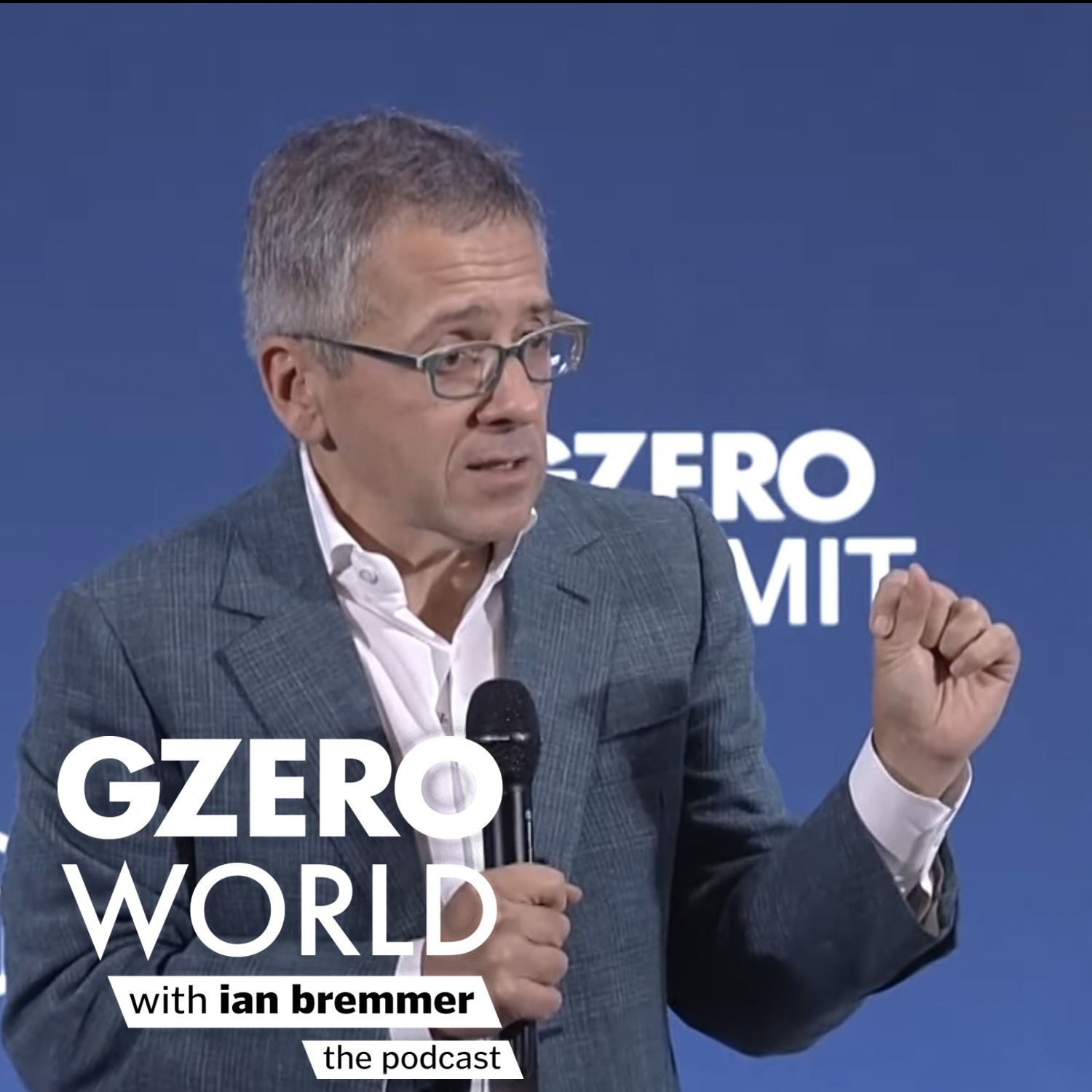


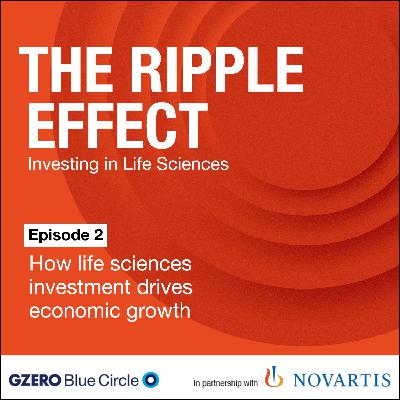
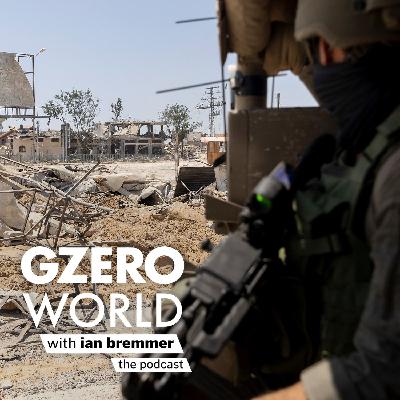
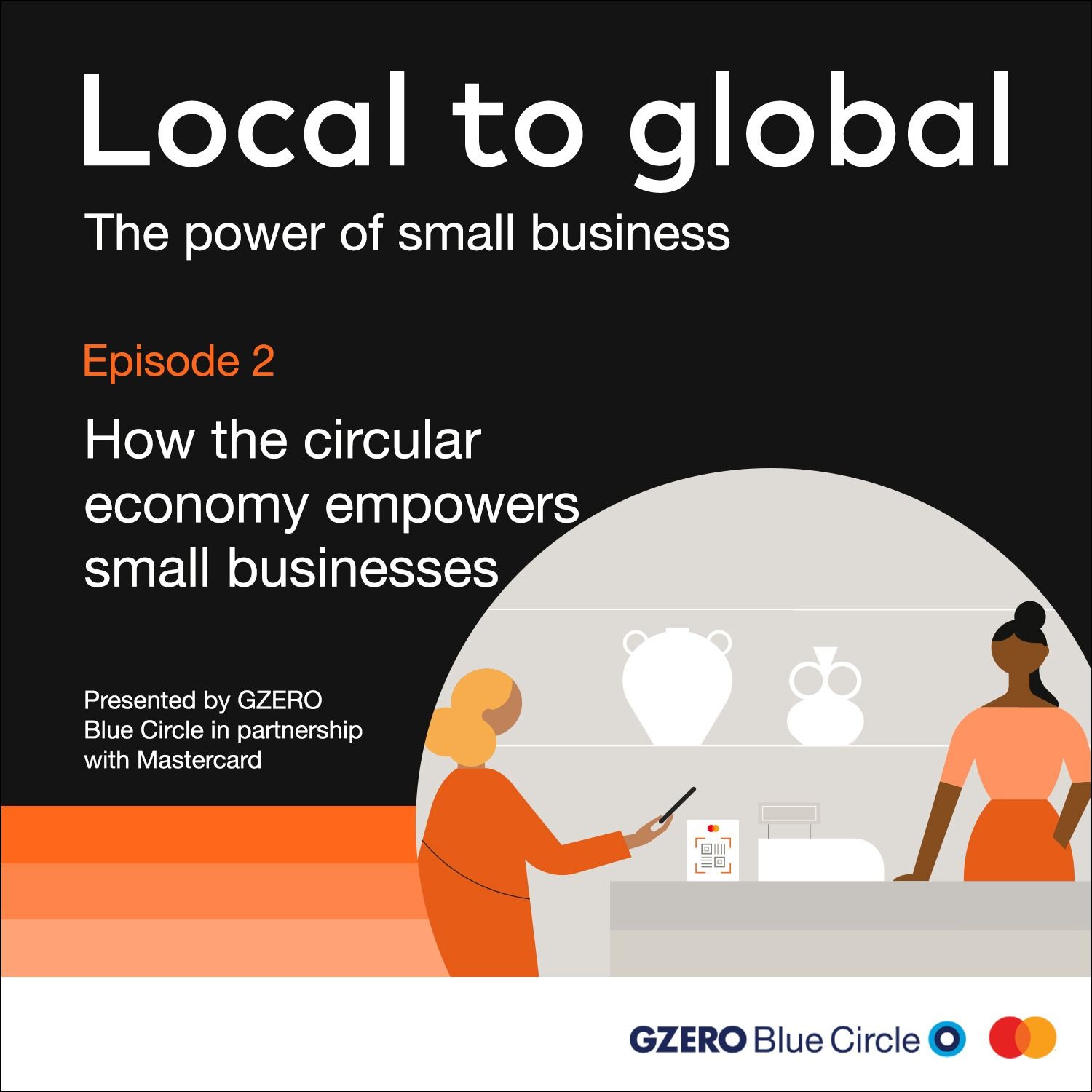

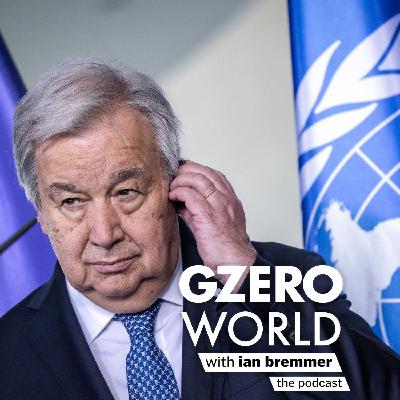
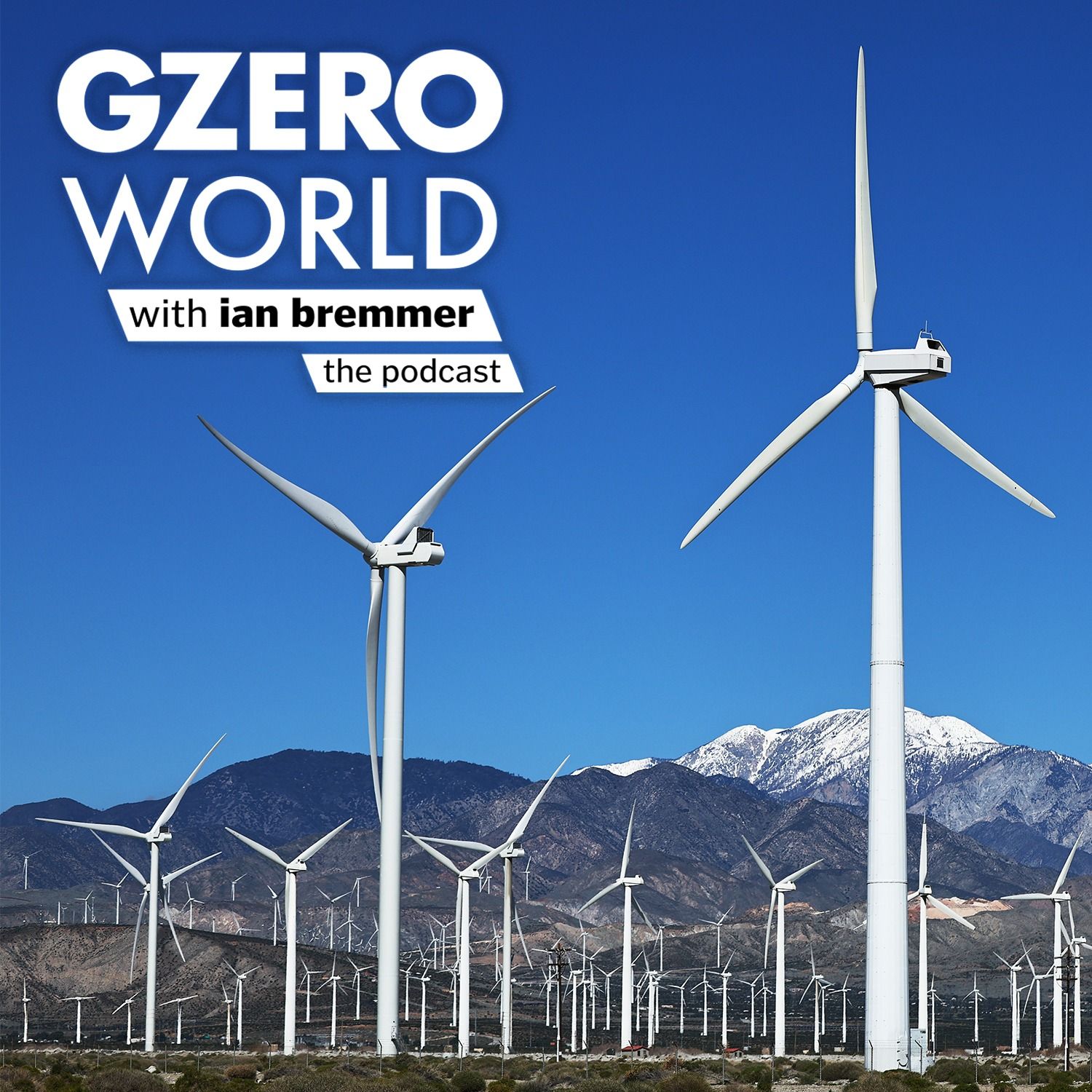



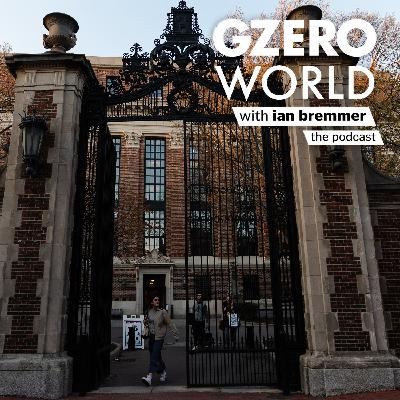
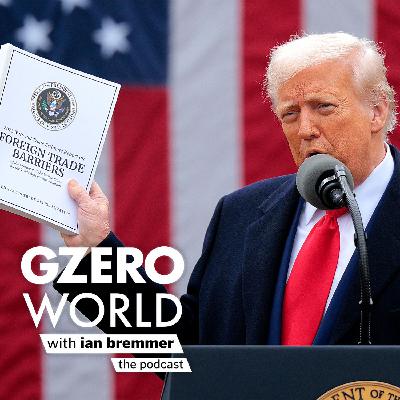

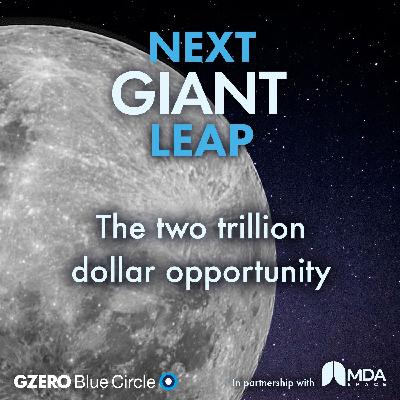
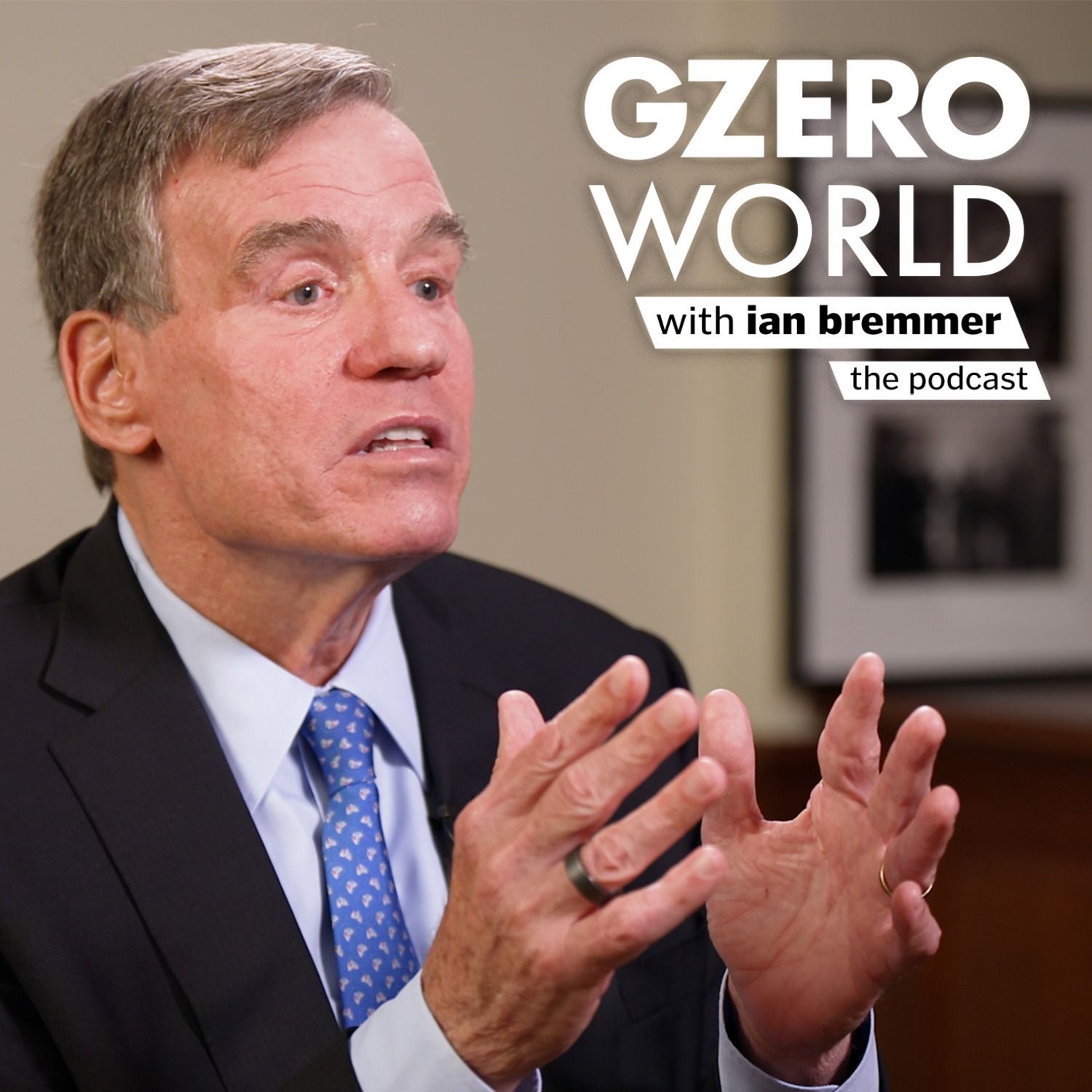

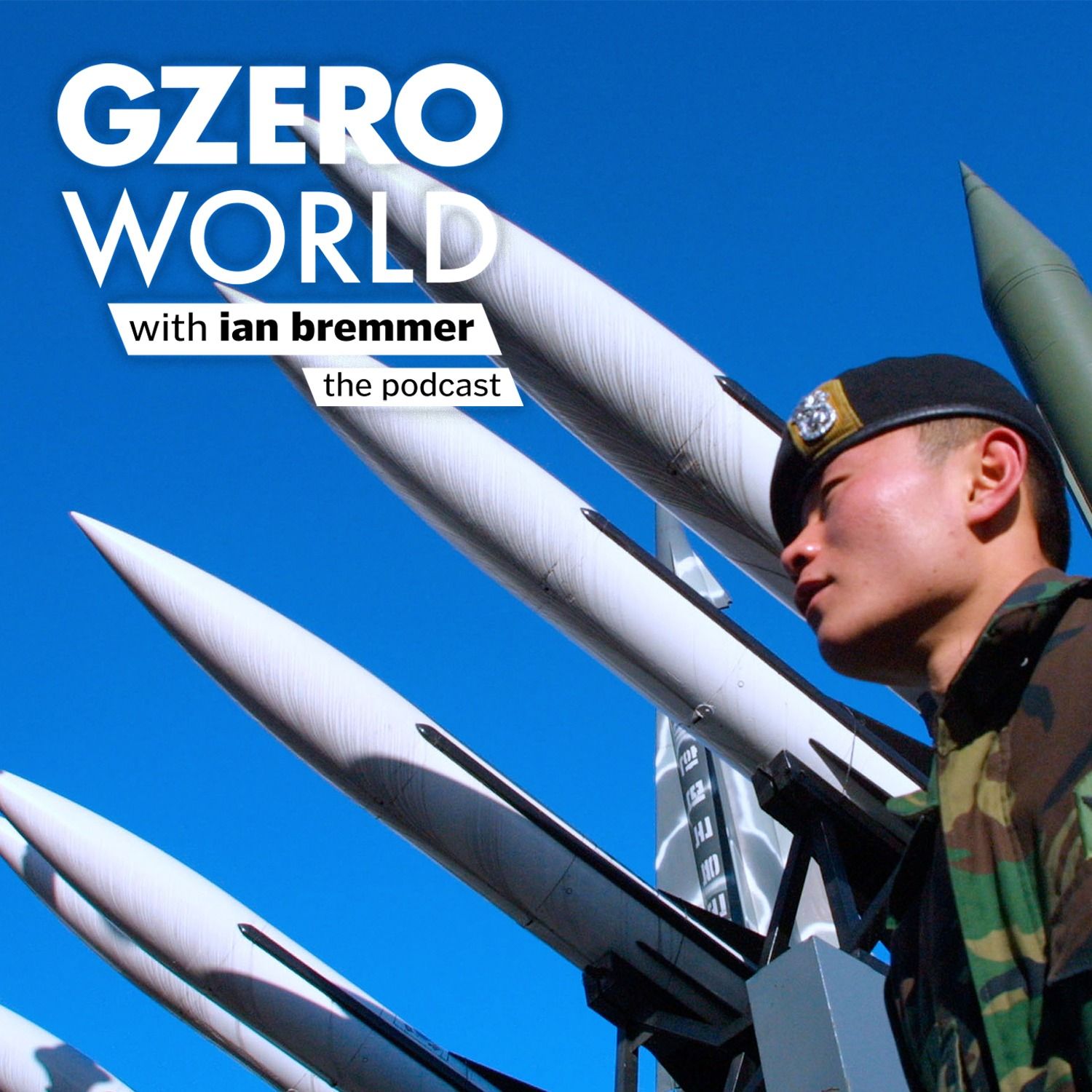



thanks
Apparently just a platform for oil industry shills to deliver lengthy, fact-free word salads about how committed they are to energy transition and how gosh-darn important it is to not harm big oils profits in the process.
Ian Breemer. Climate Change issue become a joke because the people leading the argument are not serious. They have been hypocrites from day one to this very day and will continue too. So take your climate b.s and shove it. Many rather would prefer to meet their creator through natural causes than been forced into submission and losing freedom to a few scumbags who wants. To be Baal.
When a few decided to take advantage of this crisis and decided to hijack it to achieve their own goals by pushing their wicked agenda. I prefer to meet my creator from natural disasters than these sons of Satan's we call Globalists.
Great conversation. Make it longer.
TL;DL So what are the cities? Except Milan?
Dammit why is it so short? Do two hours next time.
if you haven't gotten a chance to see Dr. Bremmers TED talk from 2015 do yourself a favor and take a peek. it's what led me to follow his writing and podcasting.